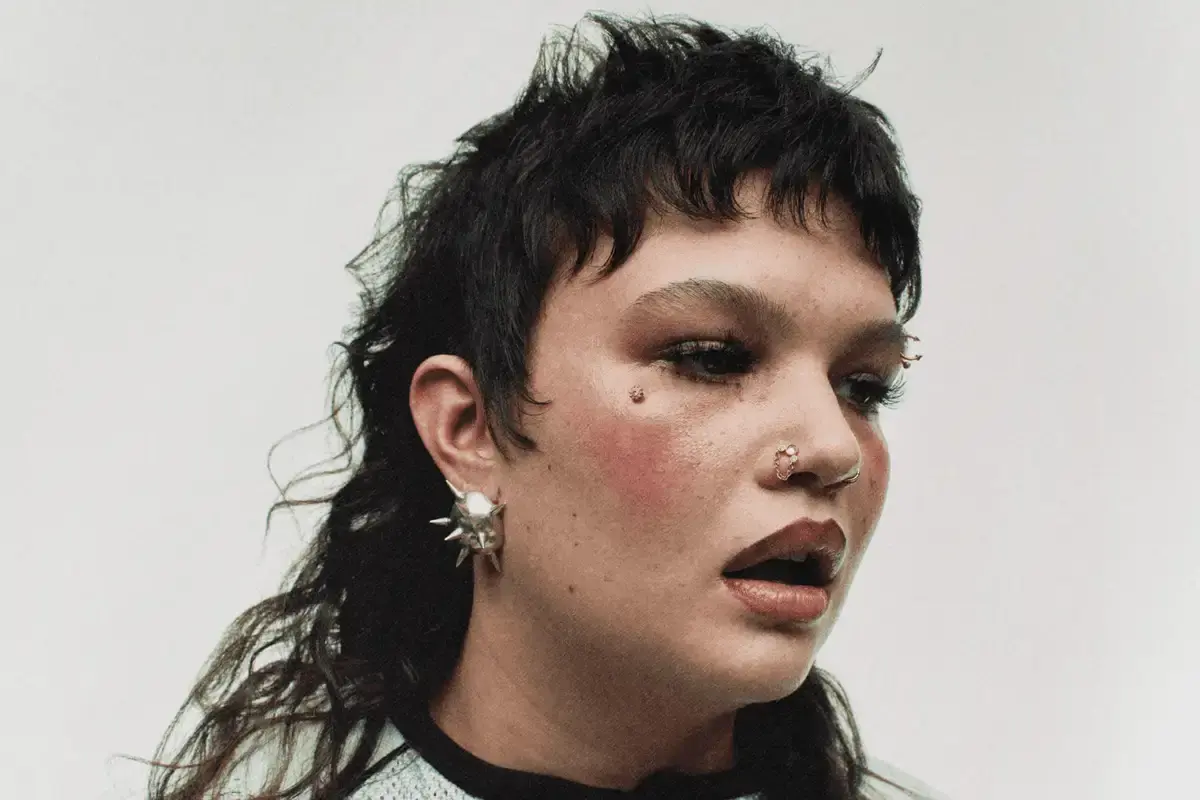
Frequently asked questions
You're aiming to collaborate with industry partners. How can you effectively convey your artistic vision?
Conveying your artistic vision and a growth plan is critical to transforming music from a hobby into a career.
Start with the basics: put together a biography and one-sheet. These will serve as a professional calling card and immediately help identify gaps.
Also, focus on the future. If you're pitching to get someone involved, you have to make it clear that you're not just talented but a worthwhile investment.
For example, could you provide evidence of your growing appeal rather than making subjective claims about your music's quality?
You're struggling to boost your online music marketing. How can you harness data analytics for success?
Benchmarking your data against the wider industry can be game-changing.
There is a lot of information available, but it doesn't mean much unless we consider the broader context.
For example, how do saves translate to future plays, or how do streams-to-listens ratios compare to others in the same genre or location?
Artists should regularly compare their engagement metrics against similar artists, looking at how this might signal a need to adjust content strategy.
What are the best ways to stay up-to-date with music festival and event management?
Staying up-to-date on festivals and events requires focusing on audience preferences and market trends.
Analyse demographics, musical tastes, and attendance patterns. Ask yourself: Which themes resonate with your desired audience? Will they attract new fans while retaining existing ones?
Organisers look for acts that boost ticket sales and create buzz. Consider: Which artists are generating excitement in your target demographic? How do they fit a festival's identity?
Conduct regular market analysis and use these insights to focus your approach. For example, Coachella's shift towards more diverse lineups reflects changing audience preferences.
You're struggling to get noticed as an independent musician online. How can you make yourself stand out?
Collaboration can be a powerful tool.
A common practice in the wider business world is partnering with aligned businesses to cross-pollinate audiences, mutually benefiting both parties.
We can do something similar in music to tap into new and relevant audiences. This can happen through flagship releases or elsewhere in a more ad-like format.
For example, perhaps it would make sense artistically and commercially to release a single on streaming services or to feature it on another's profile on a more limited basis.
You're eager to break into the music industry. What networking strategies should you prioritise?
A strong online presence is key. Think of it as a digital shop window, showcasing your skills and experiences to potential collaborators. It's important for building trust and credibility.
Curate your online profiles to highlight your involvement in the music scene. Share content that demonstrates your passion, knowledge, and experience in the industry.
For example, relevant music events you've attended, projects you've worked on, and commenting on trending topics.
Struggling to balance finances and creativity in your music career?
Diversifying income is essential, especially where relevance ebbs and flows.
Find multiple ways to monetise your music, but also ensure that your income streams are as self-sufficient as possible.
For example, proactively seek opportunities to expand your income, such as collaborations with other artists or commercial use.
You're navigating the music industry maze. How do you connect with key players for success?
Cultivate genuine relationships, not transactional exchanges.
The music industry moves fast, and key players are often overwhelmed with requests. Your unique value proposition is crucial for getting and maintaining attention.
To stand out, take time to understand others' goals and challenges. Then, show how your skills or insights can benefit them. For example, share relevant industry trends.
You're working on music projects for career growth. How do you measure their impact?
Fan engagement is vital to measuring a music project's impact.
Tracking interactions across channels can help you identify what resonates with potential fans and where to focus. A highly engaged audience, even if smaller, can often lead to better conversion rates and more sustainable income streams.
Try looking at releases over the past year to see which ones stood out. Is there a pattern? If so, follow it. For example, if acoustic tracks had higher save rates and appeared on more user-created playlists, creating similar content could be a good option.
How can you create a successful strategic marketing plan for musicians?
Knowing your audience is key. First, separate your creative vision from what fans want as consumers. Second, recognise that balancing these aspects is crucial for growth.
To achieve this, learn where your audience is based and what interests them. Then, frame your music in that context.
For example, a classical pianist might emphasise the meditative aspects of their music when marketing to a stress-conscious urban audience, or a rock band could highlight local cultural references in their lyrics when performing in different cities.
How can you enhance your confidence while pitching your music to industry professionals?
Communicating value is crucial for impressing industry professionals, and knowing it can help give you the confidence to impress.
Understand your project's monetary value and provide evidence demonstrating future potential.
For example, analyse your data to identify growth trends and market opportunities, such as the growing number of streams for each new release.
How can you efficiently handle and sort your digital assets in the music industry?
It's easy to underestimate the importance of organised digital assets. But, especially in the case of metadata, it can be the difference between securing opportunities or not.
I suggest regularly auditing your digital assets to ensure they are up-to-date and presented in the most relevant way. Notion is an excellent tool to start with.
Metadata tags function like SEO for blogs, making your files highly searchable. When sending music, ensure all details are included to increase the chances of discovery.
Use tools like DISCO or a database to maintain an organised record of your digital assets.
What do you do if you're a musician facing obstacles and need to develop resilience?
Adapt your approach to meet the times.
Like anything, a particular style of music or approach to building a career can go out of fashion. The creatives and professionals at the top find ways to stay relevant.
Continuously learn and evolve by speaking to colleagues or examining market trends to understand what's next. For example, a classical violinist might collaborate with a hip-hop artist to create crossover appeal.
Setting realistic goals is crucial for musicians to build resilience and maintain focus when facing obstacles. Clear, attainable goals help you navigate challenges.
Set SMART goals – Specific, Measurable, Achievable, Relevant, and Time-bound.
For example, practise for 30 minutes daily (specific) or learn a new song weekly (achievable).
What do you do if you're a musician trying to land gigs and tours?
Offering value is essential to securing support slots.
The reality is that a live booker wants to know you will bring paying fans and entertain them.
Demonstrate the size of your audience in terms of who will attend an event, not just your follower count, and provide video evidence that shows your performance will stand out.
Try creating a one-page summary (one sheet) with updated stats and links to your music. Top tools include Canva, OneSheet, or DISCO.
How can you communicate the value proposition of a music event to attendees?
Effectively communicating a music event's value proposition requires a deep understanding of the audience, strategic testing, and data-driven refinement.
Start by researching your audience's interests by conducting analysis or surveys. Posting content to platforms like TikTok and recording what resonates is one way to do this.
Align your Unique Selling Proposition (USP) with that audience's interests. That could be a cultural moment, a fun time, or another way. Ensure you plan to deliver the message on platforms where they will take action, too.
Then, when it comes time to market an event, you will have a wealth of data and tools to leverage.
You're seeking to collaborate with music influencers. How can you amplify your reach effectively?
Successful music influencer collaborations depend on understanding the audience's interests and activity.
Understanding interests goes beyond surface-level demographics to examine content preferences and engagement behaviour.
Engagement activity can be a more reliable predictor of success than raw follower counts.
For example, a guitar pedal brand might succeed more with a 50K-follower gear reviewer getting 15% engagement (7.5K total) than a 500K-follower general music influencer with 1% engagement (5K total). Chances are their fee will be lower, too.
What do you do if you want to distribute your music without breaking the bank?
Distributing music on a budget means setting clear goals and knowing what you can afford.
Start with a financial target, like earning £1000, and allocate a portion, say 50%, for distribution and marketing costs.
Focus on channels where you’re likely to convert fans, and track actual spend vs. profit as you go.
Adjust based on what’s working to keep your distribution efficient and cost-effective while maximising returns.
Juggling multiple music projects with tight deadlines. How do you decide which one takes priority?
When juggling music projects, a good strategy blends deadline management with strategic impact. Tight deadlines automatically rise to the top, but look beyond urgency to assess each project's potential contribution to my goals.
Prioritise work that combines time sensitivity with meaningful advancement by quickly mapping out imminent deadlines and evaluating strategic significance.
For instance, when balancing a film score commission, an independent album, and a collaborative EP, you should prioritise the project that offers the most significant career opportunity or aligns most closely with the overall project objectives.
Subscribe for updates



